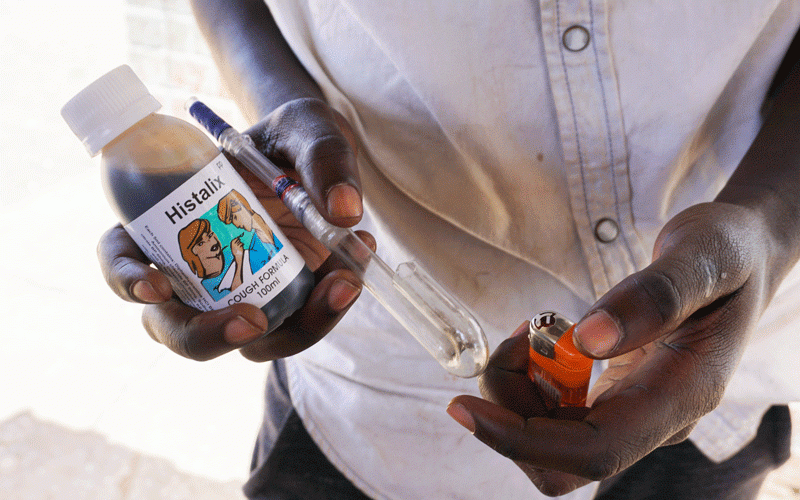
POLICYMAKERS have been accused of sleeping on duty and failing to formulate stringent laws that curb the drug scourge now affecting young people, including schoolchildren.
This follows revelations last week that eight Dominican Convent pupils were expelled from school after being caught possessing drugs during a leadership training camp in Nyanga.
Zimbabwe Civil Liberties and Drug Network director Wilson Box implored government to implement the Zimbabwe National Drug Master Plan and Rehabilitation Treatment Guidelines to strengthen policies against drug abuse.
“These documents were long produced and an inter-ministerial committee was also put in place to implement them. But after this we have seen an upsurge in drug and substance abuse. The inter-ministerial committee is not funded and the documents have been thrown away,” Box said.
“Government must dissolve its inter-ministerial committee because it has not done anything to curtail the drug problem. The committee has been to Ghana and South Africa on learning missions but thereon we have not heard anything from them. So our policymaking system is broken as drugs are everywhere. This is an emergency that needs urgent action and every society is affected,’’ he said.
Health journalist Catherine Murombedzi said implementation of laws against drugs was lax.
‘‘The problem is everywhere — even under our roofs, but the suppliers are hardly arrested as they remain untouchable. Laws are not being effectively implemented and there is poor policing. Mbanje or marijuana is on every street corner in most high-density suburbs around the country,” she said.
Murombedzi said some vendors pretend to be making money by selling sweets and maputi (corn snacks) yet they would be supplying drugs.
- Building narratives: Think Afrika: Driving digital storytelling for social change
- Zim needs a new system of governance
- Zim needs a new system of governance
- Building narratives: Think Afrika: Driving digital storytelling for social change
Keep Reading
“Up market, there is a lot of sale of drugged sweets, cookies and some parents are buying and using these. This exposes children at home. We have a serious problem as a nation,” Murombedzi said.
Rise Above Women’s Organisation director Mary Audry Chard said: “We need to ask our legislators about what they are doing about drug problems.”
Parliamentary Portfolio Committee on Health chairperson Ruth Ladobe said: “As the Health Portfolio Committee, we had not yet done anything about drug and substance abuse. This is because Health and Child Care ministry is working directly with the Home Affairs ministry on this issue.”
In a letter last week, United Baptist Church education secretary Innocent Dube said: “It has been noted that even at various church gatherings there are elderly people who even sell such drugs to earn a living. In school ablution blocks, our kids are not spared. Girls are now also into serious drugs and please do not overlook that as a responsible parent.
“Our daughters are also into serious sexual encounters with elderly people and their conscience is gone.”
He warned that students were succumbing to peer pressure, hence the need for serious monitoring by parents.
“Even exeat weekends can be areas they pick bad behaviour,” Dube said.
Shwamwari Yemwanasikana director Ekenia Chifamba said drugs will prevent the country from achieving Vision 2030 as well as its education and health targets.
“We are, therefore, calling upon every Zimbabwean and all stakeholders in all spheres to come together and fight drug and substance abuse to create a healthy Zimbabwe and a healthy generation,’’ Chifamba said.










